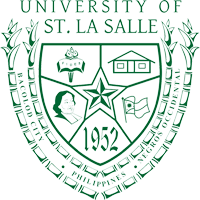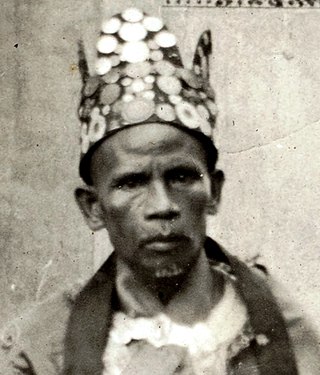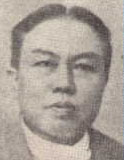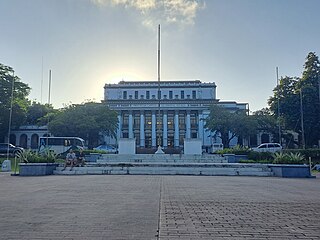
Negros Occidental, officially the Province of Negros Occidental, is a province in the Philippines located in the Negros Island Region. Its capital is the city of Bacolod, of which it is geographically situated and grouped under by the Philippine Statistics Authority, but remains politically independent from the provincial government and also one of the two regional centers in Negros Island Region. It occupies the northwestern half of the large island of Negros, and borders Negros Oriental, which comprises the southeastern half. Known as the "Sugarbowl of the Philippines", Negros Occidental produces more than half the nation's sugar output.

Bacolod, officially the City of Bacolod, is a 1st class highly urbanized city in the Negros Island Region in the Philippines. With a total of 600,783 inhabitants as of the 2020 census, it is the most populous city in the Negros Island Region and the second most populous city in the entire Visayas after Cebu City.

The Archdiocese of Jaro is a Latin Church archdiocese of the Catholic Church headquartered in Jaro, Iloilo City, Philippines. Its episcopal see is at the Metropolitan Cathedral of St. Elizabeth of Hungary, also the National Shrine of Our Lady of Candles, as its seat. The metropolitan archdiocese covers the provinces of Iloilo, Guimaras, Antique, and Negros Occidental. Its titular patron saint is Elizabeth of Hungary, whose feast is celebrated on November 17.

The University of St. La Salle (USLS) is a Catholic private research university run by the De La Salle Brothers, located in La Salle Avenue, Bacolod, Negros Occidental, Philippines. Established in 1952 as La Salle College - Bacolod, it is the second oldest campus founded by the congregation in the country. The university is a member of De La Salle Philippines, a network established in 2006 comprising 16 Lasallian educational institutions in the Philippine islands. The university offers preschool, elementary, secondary, undergraduate, and graduate programs. It has seven colleges namely: Business and Accountancy, Engineering and Technology, Arts and Sciences, Education, Nursing, Law, and Medicine.
Rolando Ramos Dizon is a Filipino De La Salle Brother who was the President of De La Salle University and the De La Salle University System from 1998 to 2003, Chairman of the Commission on Higher Education from March 2003 to September 2004, Director-at-Large of the Catholic Educational Association of the Philippines from 1998 to 2003, and Acting Brother Visitor of the De La Salle Brothers in the Philippines from 1976 to 1977 as well as a member of President Gloria Macapagal Arroyo's Consultative Commission on Charter Change from September to October 2005.

The Negros Revolution, commemorated and popularly known as the Fifth of November or Negros Day, was a political movement that in 1898 created a government on Negros Island in the Philippines, ending Spanish control of the island and paving the way for a republican government run by the Negrense natives. The newly established Negros Republic lasted for approximately three months. American forces landed on the island unopposed on February 2, 1899, ending the island's independence. Negros was then annexed to the Philippine Islands on 20 April 1901.

Ponciano Elofre, later called Dios Buhawi, was a cabeza (head) of a barangay in Zamboanguita in Negros Oriental, Philippines, and the leader of a politico-religious revolt on Negros in the late 19th century against the Spaniards.

Dionisio Magbuelas, Dionisio Seguela or Dionisio Papa y Barlucia, more widely known as Papa Isio, was the leader of a group of babaylanes who were, as conjectured by Modesto P. Sa-onoy, recruited from the remnants of the followers of Dios Buhawi upon the dissolution of his group under the poor leadership of Camartin de la Cruz during the years prior to the onset of the Philippine Revolution.

La Consolacion University Philippines is a private Catholic co-educational basic and higher education institution administered by the Augustinian Sisters of Our Lady of Consolation (ASOLC) in Malolos, Bulacan, Philippines. It was established by the Augustinian Sisters in 1937, originally named Colegio de Nuestra Señora del Carmen. It was later renamed Regina Carmeli College in 1967.

La Consolación College Manila is a private Catholic basic and higher education institution run by the Augustinian Sisters of Our Lady of Consolation (ASOLC) in the City of Manila, Philippines. It was founded by the Augustinian Sisters in 1902 when the Apostolic Nuncio to the Philippines offered ten Filipino nuns from the Augustinian Sisters of Our Lady of Consolation a house near the Basilica of San Sebastián.
The La Consolacion College Daet is a private Catholic school run by the Augustinian Sisters of Our Lady of Consolation (ASOLC) in Daet, Camarines Norte, Philippines. It was founded in 1948 and named Daet Parochial School by Monsignor Antonino O. Reganit, the then parish priest of St. John the Baptist Parish.

San Diego Pro-cathedral, formerly known as the San Diego Parish Church or the St. Didacus Parish Church before its declaration as a pro-cathedral in 1994, is an early 20th-century Roman Catholic church in Silay City, Negros Occidental in the Philippines. It is under the jurisdiction of the Diocese of Bacolod. It is the only pro-cathedral in the country and is unique in Negros Occidental for being the only church in the province featuring a cupola or dome.

La Consolacion College Bacolod, also referred to by its acronym LCCB or simply LCC, is a private, Catholic, co-educational basic and higher education institution administered by the Augustinian Sisters of Our Lady of Consolation (ASOLC) in Bacolod, Negros Occidental, Philippines.

The Diocese of Bacolod is a Latin Church ecclesiastical territory or diocese of the Roman Catholic Church in Negros Occidental, Philippines. A suffragan of the Archdiocese of Jaro, its jurisdiction covers most of the northwestern towns and cities of the province of Negros Occidental namely, as far as Victorias City in the north and the Municipality of Hinigaran in the south.

Antonio Ledesma Jayme was a Filipino lawyer, revolutionary hero, Governor of Negros Occidental, and assemblyman, as well as a lawmaker and a revolutionary nation's founding father and a signatory to a nation-state's constitution.
La Consolacion College Biñan, also referred to by its acronym LCCBn, is a private, Catholic, co-educational basic and higher education institution owned and administered by the Augustinian Sisters of Our Lady of Consolation (ASOLC) in Sto. Tomas, City of Biñan, Laguna, Philippines. It was founded by the Augustinian Sisters in 1985.

The Negros Occidental Provincial Capitol is the seat of the provincial government of Negros Occidental located at Gatuslao St., Bacolod, Philippines. Within its complex is the Capitol Park and Lagoon.
José Ruiz de Luzuriaga was a Filipino judge, sugar planter, revolutionary and politician. Luzuriaga was a member of the Philippine Commission from 1901 to 1913.













